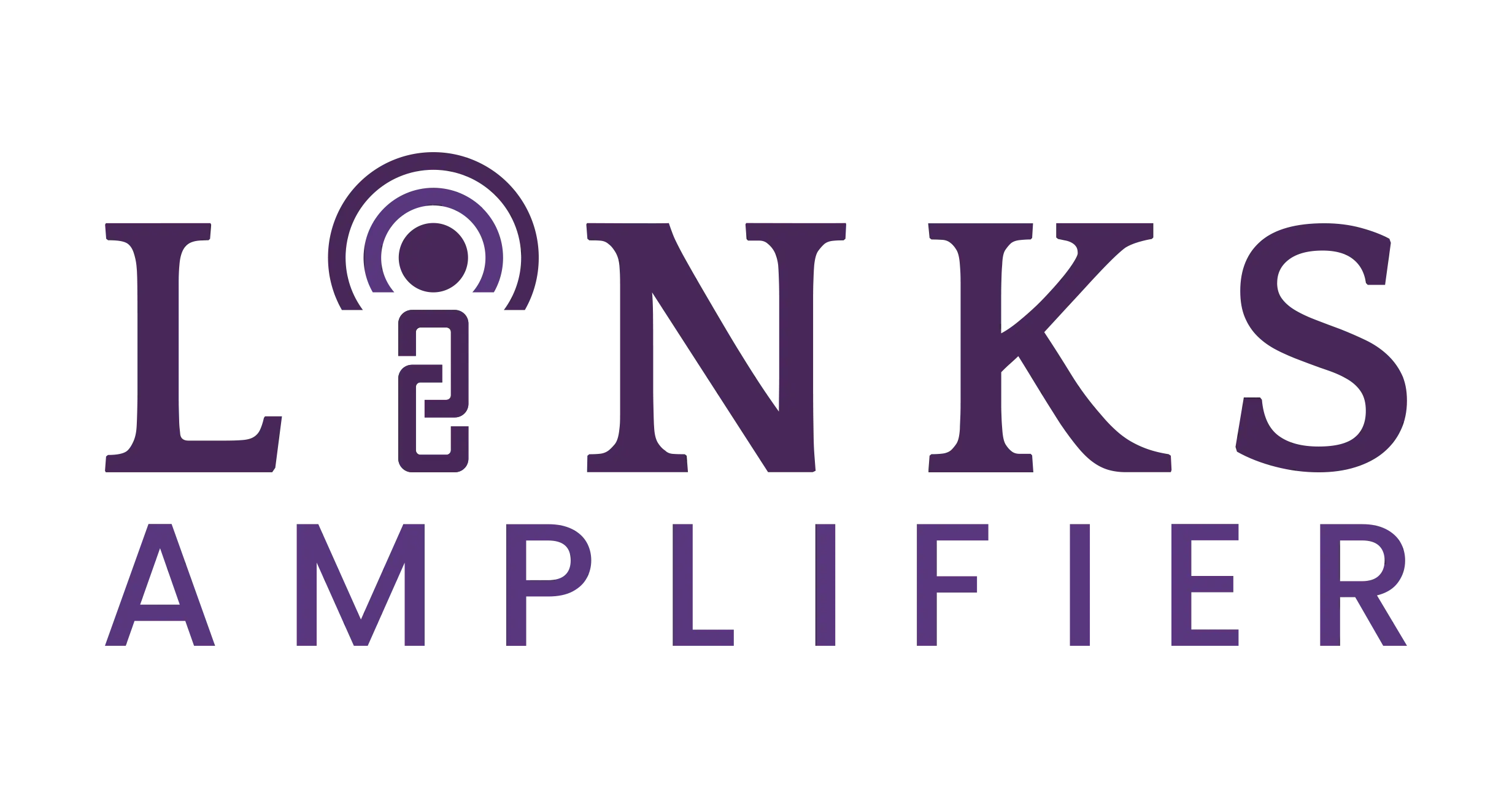Link exchange is a mutual agreement between two websites to share and exchange hyperlinks. Typically, each site includes a link to the other to boost SEO performance and increase site traffic.
Many believe all link exchanges are outdated or harmful, but this isn’t entirely true. While some practices have fallen out of favor due to search engine guidelines, ethical and well-executed link exchanges can still be a part of a successful SEO strategy.
Link exchanges can enhance your website’s authority, drive traffic, and improve search engine rankings when executed properly. However, risks include associating with low-quality sites or violating search engine guidelines, which could lead to penalties. Understanding these risks and following best practices is crucial for leveraging link exchanges effectively.
Types of Link Exchanges
Link exchanges come in various forms, each with its own advantages and risks. Understanding the different types can help you choose the right strategy for building quality backlinks while staying within search engine guidelines.
Below are some of the common link exchanges practiced nowadays.
Direct Reciprocal Link Exchange
A reciprocal link exchange is a straightforward arrangement where two websites agree to link to each other. This mutual exchange is often intended to enhance SEO by creating backlinks and potentially driving traffic between the sites.
Pros:
- Easy to implement with minimal effort.
- Can lead to direct traffic from the partner site.
- Helps establish relationships with other website owners.
Cons:
- Search engines may devalue or penalize obvious reciprocal links.
- Limited SEO value if the linked site is of low quality or irrelevant.
- Risk of being seen as a manipulative tactic if overused.
Three-Way Link Exchange
A three-way link exchange involves three websites where Site A links to Site B, Site B links to Site C, and Site C links back to Site A. This triangular setup is designed to appear more natural to search engines than a direct reciprocal link.
Pros:
- Less likely to be flagged by search engines as manipulative.
- Can distribute link equity across multiple sites more effectively.
- Fosters creative link-building strategies among multiple sites.
Cons:
- More complex and time-consuming to arrange.
- Requires trust and coordination among all parties.
- Potential for reduced effectiveness if one site is not high-quality.
Guest Post Exchange
A guest post exchange involves two websites agreeing to publish each other’s content as guest posts. Each post includes a link back to the author’s site, effectively exchanging links while providing valuable content to each site’s audience.
Pros:
- Provides high-quality, relevant content that benefits both sites’ audiences.
- More natural and beneficial than simple link exchanges, offering value beyond just the backlink.
- Can build authority and trust if the content is well-crafted and aligns with the site’s niche.
Cons:
- Requires more effort to create high-quality guest posts.
- If overused, it can become obvious and may be devalued by search engines.
- Potential for content duplication if not managed carefully, which can hurt SEO.
Relationship-Based Link Building
Relationship-based link building focuses on fostering long-term, mutually beneficial relationships between websites. It involves collaborating with other site owners, influencers, or industry leaders to earn high-quality backlinks over time. Instead of focusing on quick fixes or transactional link exchanges, this approach emphasizes genuine partnerships built on trust and value.
Relationship-Based vs. Traditional Link Building
Traditional link building focuses on mass outreach and accumulating backlinks, often prioritizing quantity over quality. This approach can yield quick results but may lead to low-quality links that harm SEO in the long run.
Relationship-based link building, however, emphasizes genuine industry connections through personalized outreach, collaborations, and ongoing engagement. It prioritizes high-quality, relevant backlinks that enhance long-term site authority and visibility.
Benefits: Long-Term Value, Trust, and Relevance
By building strong, authentic relationships, you’re setting the foundation for lasting growth.
- Long-Term Value: When you invest in building genuine relationships, you’re not just securing a backlink for today but fostering a connection that can lead to future opportunities. This could include ongoing collaborations, referrals, or natural link placements as your partners continue to create and share content. It’s a long-term investment in your site’s authority and visibility.
- Trust: Search engines, like users, value trust. When authoritative sources link to your site, it signals that your content is credible and valuable. Building authentic relationships helps cultivate this trust. It’s not just about getting a link but earning a vote of confidence from respected voices in your industry. This boosts your site’s reputation and strengthens its standing in search results.
- Relevance: One of the key factors that search engines consider when evaluating backlinks is relevance. Relationship-based link building naturally leads to contextually relevant links. You’re connecting with people who share your interests and understand your niche. This means the links you earn are more likely to be from sites with similar topics and audiences, further enhancing your site’s authority in the eyes of search engines.
Best Practices for Link Exchanges
To maximize the benefits of link exchanges while minimizing risks, it’s essential to follow best practices.
Quality Over Quantity
- How to Evaluate the Quality of Potential Link Exchange Partners: When considering a link exchange, it’s crucial to prioritize the quality of the site over the number of links. Start by assessing the site’s content, design, and overall reputation. Ensure that the website is well-maintained, regularly updated, and provides value to its visitors.
- Tools and Metrics to Assess Domain Authority, Relevance, and Spam Scores: Use tools like Moz’s Domain Authority, Ahrefs’ Domain Rating, or SEMrush’s Authority Score to evaluate the strength and credibility of a potential partner’s website. Additionally, check the site’s relevance to your niche and its spam score to avoid linking with low-quality or harmful sites.
Relevance and Niche Alignment
- Importance of Exchanging Links with Websites Within Your Industry: Links from sites within your industry or niche are more valuable to search engines because they appear more natural and relevant. Exchanging links with sites that share a similar audience or topic can also drive more targeted traffic to your site.
- Case Studies or Examples Showing Successful Link Exchanges Within the Same Niche: Highlight examples where niche-specific backlink exchanges have led to increased traffic, higher rankings, or other measurable benefits. For instance, an SEO agency exchanging links with a digital marketing blog could result in mutual growth and a stronger online presence.
Transparency and Communication
- How to Approach Link Exchange Requests Professionally: When reaching out for a link exchange, be transparent about your intentions. Clearly explain why you’re interested in a link exchange and how it can benefit both parties. Personalize your outreach to show that you’ve researched their site and are genuinely interested in a mutually beneficial partnership.
- Building Relationships Instead of One-Off Exchanges: Focus on creating long-term relationships rather than just a single link exchange. Establishing a rapport can lead to more opportunities, such as guest posting, content collaborations, or future link exchanges. Building trust with your partners can also increase the chances of them linking to your content organically in the future.
How to Implement a Safe Link Exchange Strategy
Implementing a link exchange strategy can be a powerful way to boost your SEO, but it must be done carefully to avoid potential risks and penalties.
Step-by-Step Guide
- Identify Potential Partners: Start by researching and identifying websites that align with your niche and meet your quality standards. Utilize search engines, social media, industry forums, and link-building tools to compile a list of potential partners.
- Leverage Facebook and Slack Groups: Join relevant Facebook and Slack groups in your industry to connect with other website owners. To make the most of these groups, Slack, for example, understanding “how Slack threads work” is essential for efficient communication and finding relevant discussions. These groups often include link-building discussions or opportunities to collaborate. Actively participate in these communities to find potential partners who share your niche and are interested in ethical link exchanges.
- Outreach and Communication: Craft personalized outreach messages to potential partners, clearly explaining the mutual benefits of a link exchange. Be transparent about your intentions and provide specific examples of where their link could fit within your content.
- Evaluate the Exchange: Once a partner shows interest, carefully review their site to ensure it meets your quality criteria. Consider factors such as domain authority, content relevance, and overall quality before finalizing the exchange.
- Implement the Exchange: Agree on the placement of the links on both sites. Ensure that the links are contextually relevant and naturally integrated into the content. Avoid excessive or unnatural anchor text that could raise red flags with search engines.
- Monitor and Maintain: Monitor the status of exchanged links regularly to ensure they remain active and beneficial. If a link becomes inactive or the partner site degrades in quality, consider removing or replacing the link to protect your site’s SEO health.
Strategies for Relationship-Based Link Building
Powerful tactics to strengthen your connections, enhance your authority, and secure high-quality backlinks.
Guest Posting and Content Collaboration
- Finding Guest Post Opportunities: Identify reputable sites that accept guest posts within your niche. Use tools like Google search operators and similar platforms to find potential opportunities. Focus on sites with strong domain authority and engaged audiences to maximize the impact of your guest posts.
- Best Practices for Collaboration: When collaborating on guest posts or other content, ensure that both parties benefit from the partnership. Align your content with the host site’s audience, and propose topics that fill a gap or add value to their existing content. Maintain clear communication and mutual respect throughout the collaboration process.
Interviews and Expert Roundups
- How to Organize and Leverage Interviews: Contact industry experts and influencers for interviews, focusing on topics that resonate with your audience. Conduct interviews in a way that highlights your guest’s expertise while providing valuable insights for your readers. Publish these interviews as blog posts, videos, or podcasts, and encourage your interviewees to share the content, boosting their reach and backlink potential.
- Benefits of Expert Roundups and How to Create Them: Expert roundups gather insights from multiple thought leaders on a single topic, providing diverse perspectives and high-value content. To create an expert roundup, select a timely and relevant topic, reach out to multiple experts for their input, and compile their responses into a cohesive, informative article. This type of content is highly shareable and can attract backlinks from the contributors and their networks.
Hosting Webinars and Events
- Engaging with Your Audience Through Live Events: Hosting webinars or virtual events allows you to engage directly with your audience while showcasing your expertise. These events provide an interactive platform for sharing knowledge, answering questions, and building connections in real-time.
- Building Authority and Links Through Event Promotion: Promote your webinars and events across multiple channels, including email newsletters, social media, and partnerships with industry influencers. Collaborate with other experts to co-host events, which can increase your reach and attract high-quality backlinks from participants and attendees who share and link to the event content.
Common Pitfalls and How to Avoid Them
Even the best link-building strategies can falter if common pitfalls aren’t carefully avoided. This section highlights key mistakes like overautomation, neglecting relationship maintenance, and focusing on quantity over quality, and offers practical advice on how to sidestep these challenges for sustained success.
Over-Automation
While automation tools can streamline your link-building efforts, relying too heavily on them can lead to generic, impersonal outreach. Strive to balance automation with personalization by customizing your messages and interactions. Automation should serve to enhance efficiency, not replace the human touch that’s crucial for building genuine relationships.
Neglecting Relationship Maintenance
Building a relationship doesn’t end once a link is secured. Neglecting to maintain these relationships can result in missed opportunities for future collaborations. Regularly engage with your link partners through social media, email check-ins, or by sharing their content. Ongoing engagement strengthens relationships and keeps you top-of-mind for potential future link opportunities.
Focusing on Quantity Over Quality
Aiming for a high volume of backlinks is tempting, but quality always trumps quantity in link building. Focus on securing links from authoritative, relevant sites that provide real value to your audience. High-quality links from reputable sources improve your SEO and enhance your brand’s credibility and trustworthiness.
Tools and Resources for Link Building
Building a successful link exchange strategy requires the right tools to identify high-quality partners, track your progress, and ensure your efforts align with SEO best practices. The following tools can help streamline your link-building process and improve your overall results.
List of Recommended Tools for Finding, Vetting, and Managing Link Exchanges
- Ahrefs: Use Ahrefs to find potential link exchange partners, assess their domain authority, and monitor backlinks.
- Moz: Moz’s Domain Authority and Spam Score tools are valuable for vetting the quality of potential link partners.
- SEMrush: SEMrush offers comprehensive tools for identifying link-building opportunities, tracking link performance, and monitoring competitors’ links.
- Hunter.io: Hunter.io can help you find the contact information for potential link exchange partners, making outreach easier.
- BackkinkManager: BacklinkManager is a powerful tool for managing link-building campaigns, tracking communications, and keeping your link exchanges organized.
Resources for Staying Updated on Best Practices and Guidelines:
- Google Search Central Blog: Stay informed about the latest updates and guidelines from Google regarding link-building and SEO best practices.
- Ahrefs Blog: Ahrefs regularly publishes in-depth articles on link-building strategies and SEO tips that can help you refine your approach.
- Moz Blog: Moz offers a wealth of resources on SEO best practices, including link-building and avoiding penalties.
- Search Engine Journal: Keep up with the latest SEO news, trends, and expert advice on link-building from Search Engine Journal.
Conclusion
Link exchanges, when done correctly, are a valuable tool in an SEO strategy. By understanding the different types of link exchanges—direct reciprocal, three-way, and guest post exchanges—and following best practices, you can safely and effectively incorporate them into your digital marketing efforts. Focusing on quality over quantity, relevance, and transparency ensures that your link exchanges contribute positively to your SEO success.
However, for long-term, sustainable growth, building authentic relationships beyond simple link exchanges is essential. By nurturing connections and staying informed about the latest SEO practices, you can create a strong foundation for ongoing success. Consider partnering with a relationship-based link-building agency to elevate your efforts and secure high-quality backlinks that yield meaningful results.

Jinky Oblianda is the founder of Links Amplifier Digital. She has been building links for businesses and helping agencies for years before slowly starting her own agency.


